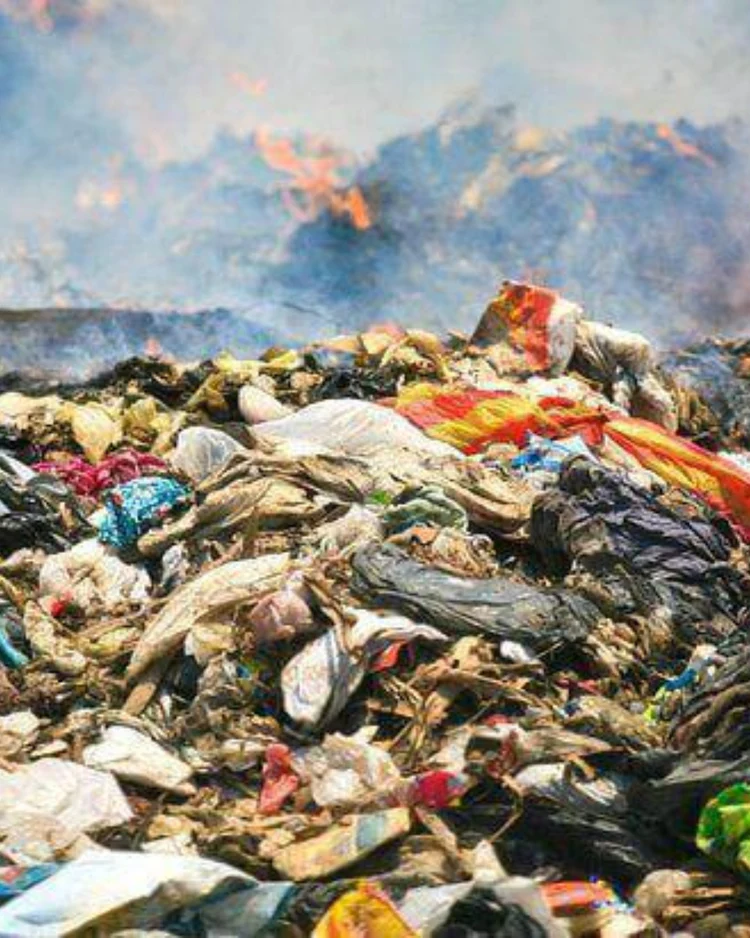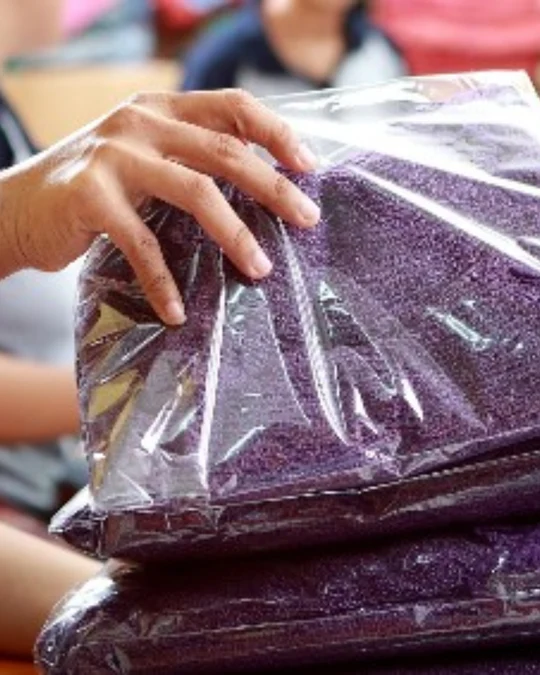Why recycled plastic shouldn’t be a choice for your sustainable packaging solution.

We talk to many fashion brands each week and certainly it feels as though most brands are actively looking to move away from plastic anywhere in their supply chain. With fashion being one of the most damaging industries in its use of water, pesticides, plastic, transportation and of course product waste which ends up in landfill, it is no wonder that brands are looking for ways to reduce their negative impact on the planet.
Fashion For Good, as platform which declares itself to be a platform for sustainable fashion
innovation, issued a paper titled ´Polybags in the Fashion Industry; Evaluating the Options´, in collaboration with the Sustainable Packaging Coalition in December 2019. One of the conclusions was to recommend recycled plastic to be used for fashion´s polybag problem. We are talking about fashion´s estimated 200 billion garment bags used each year to transport garments and accessories from factory to warehouse or consumer.
Some of these units are moved of course by large brands who have a collection system in their own warehouses, set-up to collect the recycled plastic bags they have used. So recycled bags in this case is of course better than virgin plastic bags. As long as those recycled plastic bags do not get sent out
to the consumer… But no plastic be it virgin or recycled is of course the better solution given that most of the plastic is not recycled anyway.
The US´s United States Environmental Protection Agency last report stated that in 2019 8.7% of plastic is recycled in the US and that is including the plastic which was exported to China or other Asian countries and there is no guarantee that it was recycled. Since this practice was stopped (no, we didn´t choose to stop it- they stopped it). No further reports were issued by the EPA however in
April 22 they have stated that recycling rates have dropped further – perhaps in large part due to exports having now stopped. Either way, keeping using plastic, in whichever form, is not a solution.

Discovered plastic particles in the human blood in 17 out of 22 test cases
Unfortunately, medium sized and small sized brands have followed suit and they usually do not have
control over the end of life of their bags. They will often deliver directly to their retailer, perhaps a
department store or a boutique or a consumer, where the bags are unlikely to be correctly disposed
of. In the UK The Wrap Guide in an article published 13th of May 2021 titled ¨Recycling your
customers´ plastic bags and wrapping¨ stated that only 6% of citizen´s plastic wrapping waste is ending up recycled. The rest goes to landfill or to be incinerated.
So, for most brands delivering to the consumer, it means that 96% of their products sold online to consumers in a plastic bag will be remaining on the planet for hundreds of years or be incinerated. Add to that fact that importantly, 1 in 3 consumers thinks it is Ok to place film packaging waste into the plastic recycling bin – but this contaminates the plastic which actually was going to be recycled – so huge damage is being caused there too.

So why is recycled plastic being recommended as a solution when other options which actually reduce damage caused by plastic exist? When plastic as we know it is not actually necessary in the supply chain?
Here at Eco Garment Bags, we promote the use of what we consider the 5-star solution – bags made with Hydropol™ technology because it is the only technology where the end of life requires no control at all.
It can be disposed of as green waste (consumers can use our bags for their organic waste after they received their new fashion items by mail), they can be immediately dissolved in hot water, the can be home composted, they won’t cause any damage if,( as most consumers do with plastic looking film, it is placed in the recycling bin) and if it did end up in landfill it would degrade naturally, like a piece of wood, leaving behind only carbon dioxide, oxygen and mineralised biomass.
Written By
Rebecca Pickard

